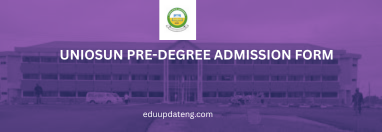Skill-Based Curriculum in Nigeria 2026: What Students, Parents, and Schools Must Know

Education in Nigeria is taking a bold new direction. In response to the growing demand for practical knowledge and employable skills, the Federal Government has approved a new skill-based curriculum that officially begins in January 2026.
This reform is not just another policy announcement — it’s a transformative shift in the way Nigerian children and youths will learn. The goal is simple but powerful: to prepare students with the skills they need to earn, innovate, and thrive in a rapidly changing world.
This article explains everything students, parents, and schools should know about the new skill-based curriculum — from the 15 newly introduced trade subjects to its benefits, challenges, and how it could reshape Nigeria’s educational future.
Why Nigeria Is Shifting Toward Skill-Based Learning
For decades, Nigeria’s education system has focused mainly on theoretical knowledge. Students were trained to pass exams, not to solve real-life problems.
However, rising youth unemployment and the increasing demand for skilled workers have forced the government to rethink the approach. According to the National Bureau of Statistics (NBS), youth unemployment remains one of Nigeria’s major challenges, with millions of graduates unable to find jobs that match their qualifications.
To address this, the Federal Ministry of Education, working with UNESCO, NERDC, and NBTE, developed a new education framework that focuses on practical skills and vocational learning. The reform aims to bridge the gap between school learning and real-world employment.
2026 Skill-Based Curriculum
The 2026 curriculum integrates vocational and trade subjects into the basic and post-basic education system. It covers both Junior Secondary School (JSS) and Technical Colleges, focusing on hands-on skills that can lead directly to employment or entrepreneurship.
The new curriculum was approved under the Nigeria Education Sector Renewal Initiative (NESRI) and will officially roll out across public and private schools nationwide.
15 Newly Introduced Trade Subjects
Under this curriculum, 15 practical subjects have been added to help students develop real-world competencies. These subjects include:
-
Plumbing and Pipe Fitting
-
Tiling and Floor Finishing
-
Hairdressing and Cosmetology
-
GSM (Phone) Repairs
-
Electrical Installation and Maintenance
-
Carpentry and Furniture Making
-
Catering and Craft Practice
-
Painting and Decoration
-
Automobile Technology
-
Computer Craft Studies
-
Agricultural Science and Animal Husbandry
-
Fabric and Garment Making
-
Leather Works
-
Photography and Videography
-
Solar Energy Installation and Maintenance
These subjects are designed to expose students to real-life work situations early, encouraging them to learn by doing rather than memorizing.
Key Features of the Skill-Based Curriculum
1. 80% Practical, 20% Theory
Technical and vocational subjects will focus heavily on hands-on learning. Students will spend most of their time in workshops or skill labs rather than traditional classrooms.
2. Integration with ICT
Digital literacy is now compulsory. Students will be trained to use computers, mobile devices, and digital tools relevant to their trades.
3. Entrepreneurship Development
Beyond learning a skill, students will be taught how to turn their abilities into small businesses or startups — making the education system a driver of entrepreneurship.
4. Teacher Retraining
The Federal Government has announced plans to train and certify teachers to effectively deliver these new subjects. Workshops and teacher development programs are being rolled out nationwide.
5. Certification and Assessment
Students will be graded based on practical competence and real project outcomes. Certifications will align with the National Skills Qualification Framework (NSQF) to make them nationally recognized.
Benefits of the New Curriculum
The advantages of this reform are wide-ranging and long-term.
1. Employability
Students will graduate with usable skills — not just certificates. Whether it’s phone repair, catering, or ICT, they’ll be ready to earn immediately after school.
2. Reduction in Youth Unemployment
By equipping students with practical abilities, the system aims to reduce Nigeria’s unemployment rate and promote self-reliance.
3. Boost to Local Economy
More skilled young people mean more startups, more services, and stronger local economies, especially in rural areas.
4. Real-Life Problem Solving
This approach encourages innovation and creativity. Students learn to think critically, fix problems, and develop sustainable solutions.
5. Global Relevance
Skills such as solar installation, ICT, and digital design are relevant globally. Nigerian students can compete in the international job market or freelance economy.
Challenges Ahead
While the policy is promising, several challenges may affect its implementation:
-
Lack of trained teachers in rural areas.
-
Insufficient workshops and facilities for practical training.
-
Funding constraints for schools to acquire necessary tools.
-
Resistance to change from traditional educators or institutions.
However, education stakeholders, including the Federal Ministry of Education and state governments, have pledged support and funding to ensure successful execution.
What Parents and Students Should Do Now
-
Embrace the Change: Parents should encourage their children to explore these new subjects seriously. Skills are the future.
-
Support Learning Materials: Provide learning kits, online tutorials, or mentorship.
-
Encourage Innovation: Students should try to practice what they learn outside school — e.g., small DIY projects or volunteering.
-
Stay Updated: Follow educational news sources like EduUpdateNG.com for updates on curriculum rollout, exams, and opportunities.
The Future of Education in Nigeria
The 2026 skill-based curriculum marks the beginning of a new era for Nigerian education. Instead of producing graduates who depend solely on white-collar jobs, the system aims to produce job creators, innovators, and skilled professionals.
With the global economy shifting toward digital and technical industries, Nigeria’s reform is timely and necessary. If implemented effectively, it could change the story of millions of Nigerian youths and position the nation for sustainable development.
Read Also: JAMB 2026 News and Updates
The launch of the 2026 skill-based curriculum is more than an educational update — it’s a national strategy for empowerment and economic growth.
By combining academic knowledge with real-life skills, Nigeria is setting a new standard for African education.
As we enter this new phase, students, teachers, and parents must work together to make it a success. At EduUpdateNG, we will continue to track every update, announcement, and opportunity related to this reform.
Bookmark this page and stay informed — because education with skills is the future of Nigeria.





